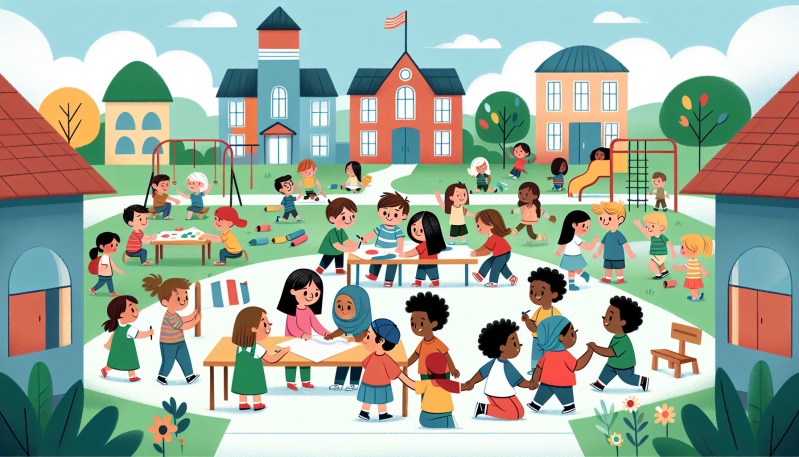The hallways of elementary, middle, and high schools are more than just passages between classrooms; they are corridors that echo the emotional and social heartbeat of our young generation. It is here, among the din of locker doors and the shuffle of footsteps, that the need for mental health awareness, kindness, loneliness abatement, and diversity, equity, and inclusion (DEI) becomes acute. This is where Friendship Week steps in, weaving a tapestry of empathy and understanding that wraps every child in the warmth of inclusion and care.
As an organization akin to UNICEF in its dedication but tailored uniquely to the school environment, Friendship Week serves as a beacon of hope, mirroring the protective and nurturing essence that UNICEF provides for children globally. We understand that the path to educational success is not just paved with academic rigor but also with the softer yet equally crucial elements of emotional and social well-being.
**The Importance of Mental Health Education in Schools**
Mental health was once a taboo topic in schools, but not anymore. With an uptick in awareness and the undeniable impact of mental well-being on academic performance, schools are now active participants in destigmatizing mental health issues. Friendship Week advocates for mental health education as part of the standard curriculum, empowering students with the knowledge to understand themselves and their peers better.
**Kindness as Curriculum**
Friendship Week champions kindness not as an afterthought but as a core subject within the curriculum. Integrating kindness into daily lessons can lead to a significant positive shift in school culture. It not only promotes a sense of community but also lays the groundwork for children to develop empathy, a trait that is essential in today’s diverse world.
**Loneliness: The Silent Epidemic in Our Schools**
Loneliness is often overlooked, but it is a silent epidemic affecting children of all ages. It can lead to serious health risks and negatively impact academic and social development. By initiating programs and activities that encourage interaction and friendship, Friendship Week aims to dispel loneliness, making every child feel seen, heard, and valued.
**DEI: Fostering a Culture of Belonging**
Diversity, equity, and inclusion are more than just buzzwords; they are pillars of a progressive society. Friendship Week understands that for children to thrive, they need an environment that not only accepts but celebrates their unique identities. Through specialized programs and training, we help schools create a culture where every student—regardless of race, ethnicity, gender, or ability—feels a sense of belonging.
**The Viral Effect of Inclusion**
The most remarkable aspect of kindness, empathy, and inclusion is their viral nature. One act of kindness can spiral into a multitude, creating a ripple effect that traverses hallways and classrooms. As we continue to celebrate and advocate for these values, Friendship Week invites school staffers, educational influencers, parents, and students to partake in this joyous revolution of the heart.
**Inclusion Advocates for Students with Disabilities**
As experienced inclusion advocates for students with disabilities, we place a special emphasis on ensuring that these students are not just accommodated but actively included in every aspect of school life. We believe that when students with disabilities are given the same opportunities as their peers, the entire school community is enriched.
In sharing these principles and practices, we hope to not only effect change in schools but also to inspire a broader movement that promotes mental health, kindness, loneliness relief, and DEI well beyond the classroom walls. Let us join hands, stand together, and declare this the generation where every child feels the power of a truly inclusive education. The time is now, and the place is everywhere. Welcome to Friendship Week, where every week is a celebration of the boundless potential within our children’s hearts and minds.


